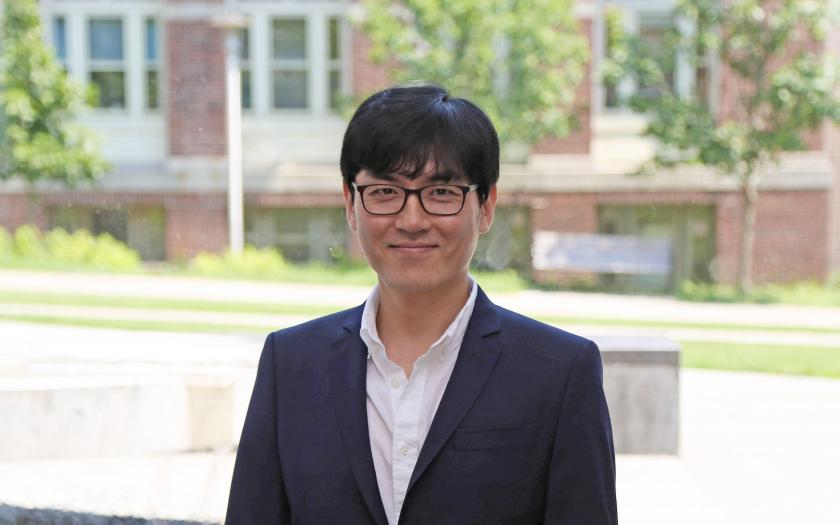November Faculty Spotlight - Jonghwan Lee

Jonghwan Lee is an Assistant Professor in the School of Engineering and a member of the faculty of the Brown Institute for Brain Science at Brown University. Before joining Brown in 2015, he was an Instructor in Radiology at Harvard Medical School after completing postdoctoral training in the same institution. He received a Bachelor of Science in Physics and PhD in Neural Engineering from Seoul National University, South Korea. His research fields are Neuroengineering and Biomedical Optics. He is a recipient of the NIH K99/R00 Pathway to Independence Award and Richard B. Salomon Faculty Research Award.
Credit: Amy Simmons / Brown University
1) When did you know you wanted to be a biomedical engineer/researcher?
My undergraduate degree was in physics and I was actually not interested in biomedical engineering at all as an undergraduate. After I graduated and did my military service for four years in Korea, I found an article from Brown about John Donoghue’s work. It was sort of a dream I had as a kid to control a robot with the brain and before I read the article I thought that was just science fiction but after I realized people were actually starting to do that I was very excited and I changed my career. I then did my PhD in neuroengineering and my specific research goal was to come up with a new way to read brain signals with high throughput recordings using optical waves.
2) Of all of the publications you have written, is there one that you are most proud of? Why?
First, is the paper I published when I was a PhD student. When I started my PhD, the group did not work on optical recording. My advisor was very supportive of me, but I had to set up everything. So far neural activity was only measured using electrodes and I wanted to measure it using light. Optical recording had only been done in vitro and I demonstrated it was possible to record neural activity from real brain tissue with optical recording methods. That paper only had two authors, myself and my PhD supervisor, so it was really my own work and I am proud of that.
When I moved to Boston for my post-doc, my supervisor encouraged me to expand my research interests beyond neural activity so I started measuring other dynamics including blood flow and cellular viability with optical methods. At that time it was not possible to measure cellular viability in vivo inside of a cell. I realized we needed a new theory to make it possible. I did a lot of research on other theories and eventually made a new theory and it was published in Optics Express and its been cited almost 100 times in only a few years, so I’m quite proud of that as well.
3) Did you ever do experiments that didn’t work?
Every experiment I’ve done so far was not successful on the first try . The lesson I teach my students and postdocs is that if you succeed in an experiment the first time you should not trust it. That probably means that either someone’s done it already or something’s wrong. It’s always a trial and error process, so when we do succeed it’s very exciting.
4) How do you choose the projects your group works on?
I encourage all of my students including undergraduates to initiate their own study rather than supporting more senior members. Currently I have seven undergraduate students and each of them started with literature review. They discuss with me what they find and are interested in and we discuss the possibilities and significance of each. Once they have a project idea I try to strongly support each student. Every member has one project that they own but overall we have a direction as a lab. We’re focused on new techniques for imaging with high spatial and temporal resolution and applying them to clinical medicine. For instance, we are currently working on intraoperative microscope that can identify brain tumors better than current techniques. Another project is to optimize retinal imaging to predict Alzheimer's disease as early as possible and that idea actually came from undergraduate student.
5) What three qualities are most important for ensuring success as a young researcher?
Grit, knowing how to find the right questions, critical thinking